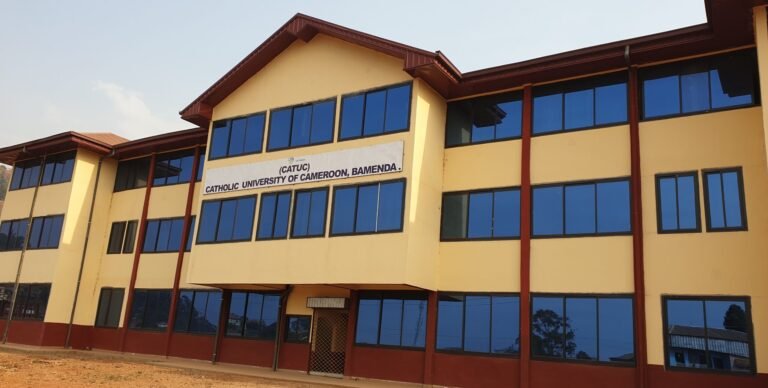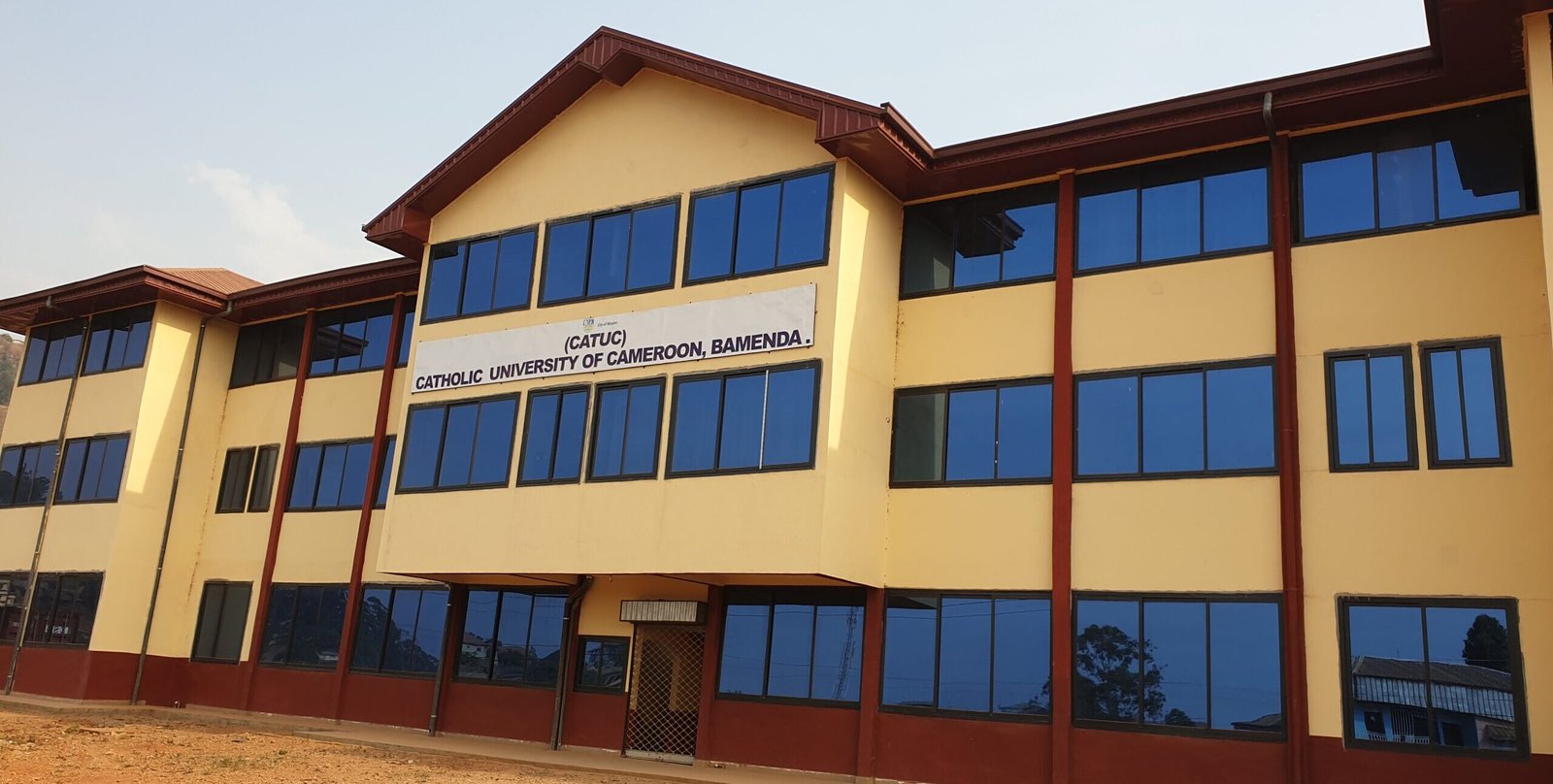MD Medicine Program

SPECIALTY : Medicine
DURATION : 7 years (14 Semesters)
DEGREE IN VIEW :
Doctor of Medicine (MD)
DEPARTMENT : Medicine
SCHOOL : School of Health of Medical Sciences (SHMS)
Category : graduate
The MD program ensures that students find themselves amongst the best and most committed medical students in the country. Students will follow an innovative curriculum taught by renowned academic and clinical staff. The underlying philosophy of CATUC’s School of Health and Medical Sciences is the integration of medical sciences and clinical teaching.
Mission
Improving the health and well-being of the Cameroonian population is our ultimate mission. This could be achieved by providing a supportive learning environment where students will acquire a comprehensive skill set that will enable them to develop a critical and reflective approach to research and practice in medicine, hence making to become effective medical doctors. The general and technical courses offered in the program along with CATUC’s ‘learn by doing’ philosophy will prepare the student for the technical demands of the new millennium.
Program Objectives
On completing the course, the graduates will have advanced practical experience and would have developed cross functional skills, attained knowledge, and attitudes necessary in today’s work environment, with focus on the following areas.
Basic medical sciences
a. Provide high level of scientific knowledge and understanding of body systems and disease processes.
b. Developed an informed and critical appreciation on recent scientific approach for actions from hypotheses, which lead to self-
c. Process information on normal and abnormal function in molecular, somatic, biological, mental and social structure and function in deriving diagnosis.
d. Effective utilization of information technology to enhance the management of health information.
Clinical and therapeutic methods, procedures, and investigations
a. Capable of efficiently managing medical emergencies including first aid and performing relevant clinical procedures.
b. Competent in assessing the health status of individuals and groups through observation and data collection from sources including the medical history, clinical examinations, laboratory investigations, and significant others within the dynamics of patients’ relationships.
c. Fully participate in medical problem-solving processes in order to derive a clinical diagnosis as appropriate.
d. Prepare and or implement a plan of patient management and care including appropriate referral.
Community health and family medicine
a. Have proper respect for the rights of individuals and groups in a multicultural society and capable of handling issues with tact and sensitivity.
b. Capable of maintain a good rapport with patients and understanding their perspectives.
c. Explore avenues of collaboration with individuals and communities in identifying and promoting aspects of health gain.
d. Use a wide range of case studies, epidemiological data, and cultural determinants of health in appraising the level of wellness, illness and health in a society.
e. Apply the principles of epidemiology and public health and an awareness of the social impact of illness to the practice of medicine in the community.
Communication skills
The curriculum content encompasses oral and written communication, which will prepare the student to become an effective communicator.
a. Effectively communicate with patients, families, and other members of the healthcare team.
b. Prepare relevant, clear and concise records, reports, letters of referral and other patient related documents.
Professional competence
a. Knowledge of the healthcare system and ethical/legal issues, socio-
b. Develop an informed and critical appraisal of published scientific literature.
c. Development of a comprehensive knowledge of social, behavioral, biological and clinical sciences with an understanding on how to apply this to knowledge. This can be achieved by participation in continuing medical education and research.
d. Practice medicine within the ambit of professional medical ethics and the law.
e. Maintain quality assurance initiatives.
f. Function as a member of the healthcare team.
Education
Teaching at the School of Health Sciences in the Catholic University of Cameroon (CATUC), Bamenda is based on the educational principles of self-
Admission Requirements
Admission into the MD program is by a competitive entrance examination –
Entrance Examination Requirements
Check the National Qualifying Exams for Medial Training in the Cameroon page.
Career Opportunities
The course will provide the student with the competitive edge, helping the student to become employable and also give the student credentials needed to help him/her succeed in the medical field. Progression opportunities include employment in hospitals in both the private and public sectors, charitable organizations, community health services, teaching hospitals, armed forces and the media. Graduates with an MD degree will integrate into the corps of care givers. Also, the training in the School of Health Sciences will provide graduates with the knowledge and skills to permit them open up their private practices.
Graduates will be well placed to apply for research studentships for further specialization and training.
Fees
The tuition fee for the first year is 1,224,500 CFAF for home students and 42,449,000 CFAF for foreign students. In the subsequent years it is 1,200,500 CFAF for home students and 2,401,000 CFAF for foreign students. To read more about fees click here.




